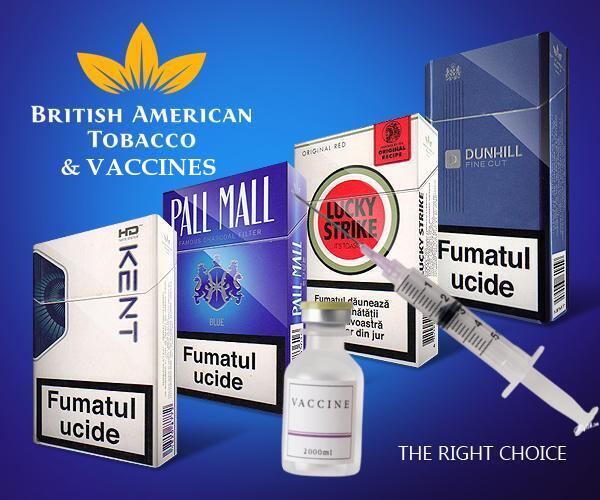This is Chapter 19 of my new book, working title “The Industry Playbook: Corporate Cartels, Corruption and Crimes Against Humanity” that is being published online chapter by chapter.
This subject was first hinted at in an earlier chapter. After ABC’s Day One program featured a whistleblower in February of 1994, Philip Morris sued for libel. They also threatened to pull advertising. Had they just been in the cigarette business at the time, they wouldn’t have been able to do this as cigarettes were no longer advertised on TV. Yet Philip Morris had this power because they had diversified beyond cigarettes. They owned other brands such as Kraft Foods and Miller Beer, whose advertising budget was over $100 million per year.
By consolidating power, in buying up other products, they could wield more influence than had the giant corporation stuck just to cigarettes. This diversification was useful across product lines because it gave them additional leverage. Here we see just one example of how that assisted them.
Philip Morris changed their name to the Altria Group in 2003 as part of their public relations. Their spin was that this was because they had moved beyond cigarettes into a consumer-packaged goods company. But primarily it was a deflection of the bad PR they were getting. Recall that name changes are common for PR efforts.
Nowadays, Altria is “Moving Beyond Smoking™”. They’re still primarily in the tobacco business, not just cigarettes, but chew, cigars, pipes, nicotine pouches, and vape products. They hold a 10% stake in Anheuser-Busch, the world’s largest brewer.
But they’re elsewhere too that you wouldn’t necessarily expect them to be. Philip Morris Capital Corporation “is an investment company that manages a portfolio of leased assets including domestic and international aircraft, power plants and real estate.”
The following is the strangest case of diversification I’ve come across. Both flu and Covid-19 vaccines are being developed by British American Tobacco (BAT), through their US based subsidiary Kentucky BioProcessing (KBP).
BAT was the one that wouldn’t dare mention the word cancer internally, so they used the code word ZEPHYR. BAT denied science behind cancer, nicotine’s addiction and secondhand smoke. BAT was caught red-handed destroying damaging documents. BAT was found guilty in the RICO case. But they’re still going strong.
PR allows for great whitewashing. Or perhaps the term greenwashing is more at play here. It appears that BAT, as part of the ESG targets (Environmental, Social, and Governance) plans to be using 100% renewable energy by 2030 and carbon neutral across their entire value chain by 2050.
In fact, in 2020, BAT was nominated as one of the top three ESG-rated companies in the top 100 largest publicly traded companies in the United Kingdom. In other words, they’re currently winning awards for their commitment to the environment and people.
What better way to do this then to jump into healthcare? “KBP has been exploring alternative uses of the tobacco plant for some time. One such alternative use is the development of plant-based vaccines,” says Dr. David O’Reilly, the director of scientific research at BAT.
It’s a plant-based vaccine so it must be better for you, right? Would you like a plant-based vaccine to go with your plant-based diet? That’s some marketing language for you there.
The facts are that this is nothing native to tobacco. But instead, scientists inserted viral genes into the tobacco plant to grow antigens and extract them out.
This genetic engineering of tobacco plants isn’t all that new. Research conducted by Brown & Williamson decades earlier had sought to use genetic engineering to double the levels of nicotine in the plants.
“Moving into human trials with both our Covid-19 and seasonal flu vaccine candidates is a significant milestone and reflects our considerable efforts to accelerate the development of our emerging biologicals portfolio,” said O’Reilly.
U.S health regulators have given them the greenlight. Phase 3 clinical trials are currently in progress at the time of writing.
Based on our “warp speed” timelines these could hit the market early 2022. Do you trust Big Tobacco is 100% above the board when it comes to their vaccines?
Nor is this the only Big Tobacco move into healthcare. Philip Morris International recently bought several biotech companies, including products that treat heart attacks and respiratory conditions. “Philip Morris’s attempted takeover of a key player in lung health products beggars belief,” said Jonathan Ashworth, Labour’s shadow health secretary.
Sadly, it only sounds extraordinary if you’re not familiar with the industry playbook. For a company, why not profit on both the cause and effects of their products? It won’t be the only time we see it happening.
Key Takeaways on Leverage
- Owning food brands gave the tobacco companies leverage to threaten to pull advertising on television programs.
- Companies such as Philip Morris, named Altria now, are still in the tobacco business but also in alcoholic beverages, aircrafts, power plants, real estate and more.
- Big Tobacco companies are diversifying into a wide range of other businesses, including:
- COVID-19 and flu vaccines that involve the genetic engineering of tobacco plants to produce plant-based vaccines
- Healthcare that involves treating some of the diseases that tobacco causes
- BAT is currently winning awards and acclaim for their commitment to ESG targets such as renewable energy and carbon reduction.
Please leave any comments or questions below. Feel free to share it with anyone you’d like.
Links to all published chapters of The Industry Playbook can be found here.
You can also support this project with a tip.

